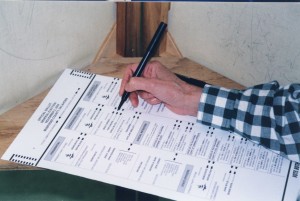Top 10 Reasons Why the Electoral College Should “Just Say No” to Trump
On Monday, the US Electoral College will be officially deciding whether Donald Trump will be president of the United States.

Alexander Hamilton had several reasons for proposing this convoluted structure. Some of them were not so noble, like giving more power to slave states. But one is worth noting: providing a check against the office going to someone unfit to hold it.
And just because that body has never found a winner unfit doesn’t mean it can’t. This time, there are a whole bunch of reasons why it might want to exercise that power. Some of them are about his complex financial empire, some about his personal actions—and some about the questionable integrity of this year’s voting process. Any one of these should be enough to say, “Hey, wait a minute, this is not OK.” Here are ten among many.
- Refusal to divest of investments that could influence policy
- Unlike every major party presidential candidate in decades, refusal to disclose his taxes
- Probable intervention by a foreign government (Russia), according to the CIA (Central Intelligence Agency)—and the request by some Electors for a briefing on this
- His opponent winning the popular vote by an astounding 2,833,224 votes
- Trump has been named in at least 169 separate lawsuits—for fraud, antitrust violations, discrimination, and sexual harassment (among other issues). One is especially worth highlighting: A consolidated fraud case (including two class action suits plus one filed by New York State’s Attorney General that Trump settled for $25 million alleged that his Trump University was a scam
- Interference in legitimate recount efforts in three states where exit polls showed a Democratic victory but the state was called for Trump
- Refusal to accept intelligence briefings, a daily part of every president’s morning since forever
- Threats to the First Amendment guarantees of freedom of speech, press, and assembly
- Threats and incitements to violence against a vast range of people, from Hillary Clinton to an 18-year-old college student
- Insults both to whole classes of Americans and to individuals who disagreed with him
This, unfortunately, isn’t even the whole story. I haven’t discussed the ludicrous lack of government experience among his Cabinet picks…his own inexperience in any government position…the consistent lying…the well-documented cheating of vendors…the lease he has with the federal government for his new Washington, DC hotel which bars any government employee…his insistence on remaining Executive Producer of Apprentice, as if running the country were a side hustle…the extremist agenda he has embraced…his refusal to meaningfully condemn the hundreds of hate crimes in the aftermath of the election…and on and on it goes.
I hope the Electors in the Electoral College do their patriotic duty, and (in the words made famous by Nancy Reagan) “just say no.”
Note: dozens of petitions to the Electoral College are circulating. Here’s one I like. It allows you to write your own letter (be polite!)

